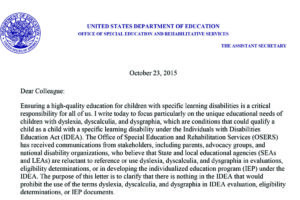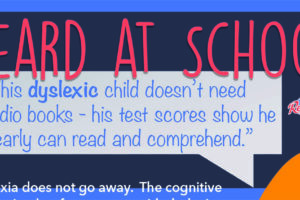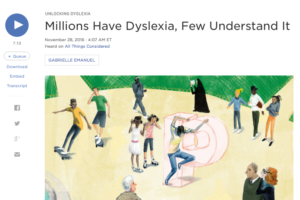The Supreme Court unanimously ruled in favor of an autistic Colorado boy whose parents removed him from public school, placed him in a private school and then went to court in an effort to have the school district to pay for his private placement. The parents believed their son did not make reasonably enough progress in the public school and that he was not being provided with the kind of services he needed under his rights under the Individuals with Disabilities Education Act (IDEA) for a free appropriate public education (FAPE). Once the boy was in private placement, his progress in achievement and behavior was markedly improved.
There are a number of important issues in this case – one being what is the expectation of how much progress a child should make.
“When all is said and done, a student offered an educational program providing ‘merely more than de minimis’ progress from year to year can hardly be said to have been offered an education at all,” wrote Chief Justice G. Roberts in the opinion for the court.
“For children with disabilities, receiving instruction that aims so low would be tantamount to ‘sitting idly … awaiting the time when they were old enough to drop out,'” he added, quoting from key 1982 Supreme Court precedent on special education, Board of Education of the Hendrick Hudson Central School District v. Rowley.
“The IDEA demands more,” the Roberts said. “It requires an educational program reasonably calculated to enable a child to make progress appropriate in light of the child’s circumstances.”
You can read the entire opinion here and learn more about it a wrightslaw.com. For parents and advocates who struggle with






Leave a Reply
Your email is safe with us.